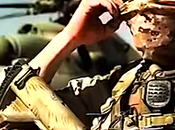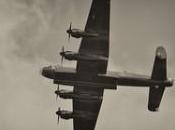Cercando le tipologie di modelli di caccia aerei utilizzati dall’aviazione siriana per colpire postazioni ribelli e centri urbani ad  alta densità e facendo fede ai video, alle fotografie e alla memoria visiva, è venuto fuori che i caccia visti in azione su Aleppo non erano Mig 23, come tutti comunemente dicono, ma presumibilmente degli L-39 Albatros (e successivi modelli) di fabbricazione Cecoslovacca, Jet da addestramento, dei quali l’aviazione siriana ne ha almeno 40 già armati (fonte Inss). Le conferme arrivano anche da alcuni siti specializzati come Air Cache e di appassionati di aeronautica. In un altro blog le stesse conclusioni: i caccia utilizzati soprattutto nei centro urbani sono gli L-39 Albatros. “Syria is known to possess several L-39ZA aircraft. The ZA variant is specifically upgraded for light ground attack. It carries a GsH-23L 23mm twin canon with 150 rounds and outer pylons that can carry air-to-air missiles and ground attack munitions. It can carry almost 3,000 lbs. of munitions“.
alta densità e facendo fede ai video, alle fotografie e alla memoria visiva, è venuto fuori che i caccia visti in azione su Aleppo non erano Mig 23, come tutti comunemente dicono, ma presumibilmente degli L-39 Albatros (e successivi modelli) di fabbricazione Cecoslovacca, Jet da addestramento, dei quali l’aviazione siriana ne ha almeno 40 già armati (fonte Inss). Le conferme arrivano anche da alcuni siti specializzati come Air Cache e di appassionati di aeronautica. In un altro blog le stesse conclusioni: i caccia utilizzati soprattutto nei centro urbani sono gli L-39 Albatros. “Syria is known to possess several L-39ZA aircraft. The ZA variant is specifically upgraded for light ground attack. It carries a GsH-23L 23mm twin canon with 150 rounds and outer pylons that can carry air-to-air missiles and ground attack munitions. It can carry almost 3,000 lbs. of munitions“.
I motivi? Le conclusioni sono due una strategica, l’altra logistica.
“Because trainers such as the L-39 are slower and handle better at low altitudes and lower speeds. This makes them more effective in an urban combat scenario where the threat from ground based anti-aircraft assets is negligible. Were the Syrians facing an army armed with anti-aircraft missiles and radar guided anti-aircraft-artillery, these types of aircraft would be blown out of the sky. But they are not. Types such as the MiG-23 or Su-24 are designed for fast penetration and faster egress, but this may come at the cost of accuracy, and hence are not best suited for fighting in Syria’s cities”.
Meglio dei Mig quindi, che sarebbero meno efficaci in contesti del genere di guerriglia urbana.
Viene evidenziato però anche che a livello logistico l’aviazione incomincerebbe a perdere qualche colpo:
“My own personal opinion is that, having seen footage of fighter planes in Syria being destroyed on the ground by militants and the defection of air-force fighter pilots, the Syrians are running short of fighter-bomber aircraft and may be converting other aircraft to drop munitions or carry out other duties normally carried out by more sophisticated aircraft“, dicono.
Stessa conclusione per il sito Air Cache: “The L-39 is weakly armed compared to its Soviet-built jets. A single Mig-23 can carry twice as much weaponry as the L-39ZA. An Su-24 “Fencer” can carry six times more bombs and missiles than an L-39ZA. Syria is clearly having difficulty maintaining, arming, and using its more advanced Russian jets“.
Quale delle due sia la risposta corretta non lo sappiamo, ma entrambe sono buoni motivi per utilizzare i meno potenti L-39 rispetto ai Mig, che tra l’altro sono facilmente abbattibili rispetto ai loro “fratelli maggiori”. Il che ci porta ad un’altra conclusione: missili terra-aria di tipo Stinger le forze ribelli ne hanno ben pochi, altrimenti avrebbero abbattutto tutti o quasi gli L-39.





